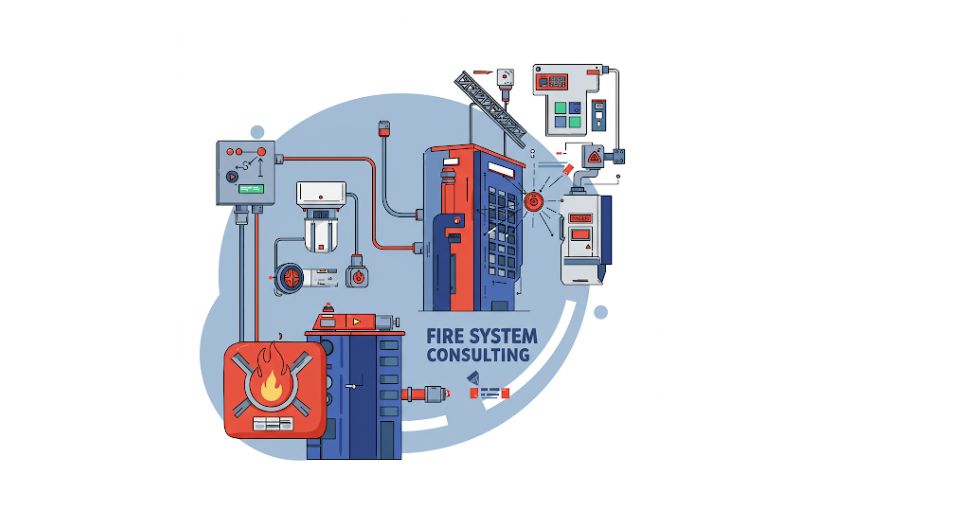
May 07, 2025

The report by Metastat Insight offers a thorough analysis of the global fire system consulting market and offers a fresh perspective on an industry fueled by strategic growth and sector-specific forces. Rather than providing an overall picture, the report takes up the intangible character of fire safety consultancy, reflecting on the way in which organizations within various sectors increasingly seek the application of expert insight to navigate regulation regimes, apply advanced fire protection features, and confirm compliance in multiple operational conditions.
Global Fire System Consulting market is estimated to reach $6,622.95 million in 2025 with a CAGR of 8.8% from 2025 to 2032.
This move, driven by necessity rather than fashion, reinforces the growing use by companies of advisory services to guide them through very technical systems of safety. In contrast to broad safety installations, fire systems must be sized to suit a building's use, occupancy, and structure. Specialized consultancy enters the picture—that is, not merely to suggest but to interpret complex codes and select the appropriate mix of technologies and protocols to achieve life safety and asset protection. In this way, fire protection consulting has developed from being a ancillary service to a central partnership in planning and operations, especially in infrastructure-based sectors like healthcare, transportation, energy, and manufacturing.
One of the astounding features brought out in the report is market diversification, with local consultants operating alongside multinational players, each bringing their own regional experience and technical edge. With this combination of service providers, the entire range has been enriched so that both the needs of small-scale development and large-scale development are equally attended to. The introduction of computer-aided design software and simulation technologies has further raised the expectations placed on consultants. No longer the domain of manual calculations, fire protection experts now engage computer models to predict fire action, optimize evacuation plans, and optimize system reliability across different conditions.
Another sector receiving focused attention is that of the regulatory patchwork that consultants must navigate. Due to the difference in codes and standards from nation to even local governments, consultants have to be constantly trained, adapting methodologies to meet newly evolving specifications once they turn into something new. This has placed a great premium on adaptability and continuous training within the firms themselves. Clients, similarly, are showing a desire for such firms that invest money in keeping their employees trained, especially in cases where project execution spans multiple geographic areas.
Economic considerations have quietly but profoundly impacted demand. With building and infrastructure projects at the heart of the consulting world, the increasing integration of intelligent technologies and environmental design has created new opportunities. Fire safety designs now need to accommodate intelligent building management systems, alternative energy systems, and sustainable materials. The relationship between traditional fire protection standards and new construction methods adds complexity layers that make consulting services not just valuable but essential.
The competitive landscape, the research finds, is also changing. Rather than competing on price, firms are differentiating themselves through specialization. Some have carved out niches in the preservation of historic buildings, others in high-rise commercial or big industrial buildings. These specialized capabilities enable them to offer sophisticated advice that mass service providers may overlook. Customers are becoming more advanced, typically requiring consultants with advanced project expertise, and this in turn persuades companies to continually refine their services.
One other subdued but significant trend in the report is collaborative planning. Rather than being hired in later on after design, fire consultants are becoming involved at the initial stages of construction planning. Through doing so, they can have an opportunity to inform architectural design decisions and system integrations that lead to safer and less expensive solutions. Early intervention also reduces rework or retrofitting, which is expensive and causes project delay. As a result, consultancy is becoming a forward-looking part of project strategy and not simply a back-office adjunct.
Globalization has also played its part. As companies globalized, they have to navigate a maze of fire safety regulations. Global consultants are often hired to standardize across many locations but localize to meet local requirements. This balancing act between consistency and localization reflects the high-level skillset involved in this line of work—where technical precision needs to exist alongside cultural and regulatory sophistication.
Metastat Insight's report presents a snapshot of an industry that, while niche, is growing ever more critical to a range of industries. Fire system consulting as a market is becoming an integral component of infrastructure development and risk assessment, driven by technology, regulatory evolution, and growing recognition of safety requirements. In its recording of the current shape and trajectory of the international market for fire system consultancy, the publication provides not just snapshot but full consideration of its evolution and strategic value within the contemporary built environment.
Drop us an email at:
Call us on:
+1 214 613 5758
+91 73850 57479